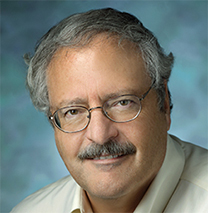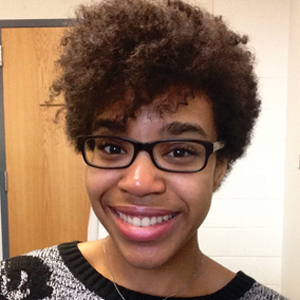Hart honored for glycobiology breakthroughs
Many proteins are not physiologically active after translation. In fact, many have small chemical groups such as sugars or phosphates added later in what are called post-translational modifications. One such suite of modifications, glycosylation, was long thought to be added only in the secretory pathway or at the cell surface. Glycobiologist Gerald Hart debunked this myth when he showed that a modification called O-linked beta N-acetylglucosamine, or O-GlcNAc, was added to intracellular cytoplasmic and nuclear proteins. For this and other contributions, Hart, a professor and director of biological chemistry at the Johns Hopkins University, has won the American Society for Biochemistry and Molecular Biology’s 2018 Herbert Tabor Research Award.

“Receiving the Herb Tabor Award is a special honor for me personally. I have admired Dr. Tabor since I was a graduate student. Not only because he is a first-rate scientist, but also because of his devotion in leading the premiere biochemistry journal for such a long time. He handled complex and contentious issues in a manner that always treated people with respect and civility. Herb is an amazing scientist, a nice human being, and an incredible citizen of our field. He serves as a role model that we can all aspire to.”
— JERRY HART
Hart began his work in glycobiology as a graduate student in Gary Conrad’s laboratory at Kansas State University where he studied sugar modifications to proteins including proteoglycans and glycosaminoglycans. While a postdoctoral fellow at Johns Hopkins in William Lennarz’s laboratory, Hart experimentally determined the protein amino acid sequence required for the enzyme oligosaccharyltransferase to add a sugar moiety. As an independent investigator at Johns Hopkins, Hart continued studying glycosylation, looking at the addition of sugars to the nitrogen of certain amino acids, termed N-linked glycosylation. A collaboration with Paul Englund’s laboratory at Johns Hopkins led to determining the pathway necessary to add a phospholipid, glycosylphosphatidylinositol, to proteins attached to the plasma membrane.
Members of Hart’s lab discovered the addition of O-GlcNAc to cytoplasmic and nuclear proteins in the 1980s. This modification is a monosaccharide sugar and is not elongated further. Its cycling on and off of proteins is similar to phosphorylation, with one enzyme adding the sugar and another removing it. In addition, the donor used to generate O-GlcNAc is made by redirecting incoming glucose to a different pathway. Hart’s group characterized and cloned the enzymes involved in the O-GlcNAc addition and investigated the interplay between O-GlcNAc and phosphorylation. They determined that the O-GlcNAc modification is added to proteins involved in signaling and transcription and that its generation is a nutrient sensor, as a substantial amount of glucose is siphoned away from glycolysis to generate the modification.
Hart has served on the National Institutes of Health common fund glycoscience panel and the Howard Hughes Medical Institute review panel. He was founding editor-in-chief of Glycobiology from 1989 to 2001. He is an associate editor of the Journal of Biological Chemistry and Molecular & Cellular Proteomics and the president-elect of the ASBMB.
In his letter nominating Hart, Kevin Campbell, professor of molecular physiology and biophysics at the University of Iowa, wrote that Hart “created an entirely new field by demonstrating (the O-GlcNAc modification) occurs in both the nucleus and cytoplasm of mammalian cells.” A.L. Burlingame, a professor of pharmaceutical chemistry at the University of California, San Francisco, and editor of Molecular & Cellular Proteomics, supported the nomination, noting that this honor fits Hart’s work: “considering the achievements of Herb Tabor and his towering stature in reporting and molding the progress of biological chemistry through JBC, Jerry Hart is the perfect candidate for consideration of this award.”
Hart will receive his award during the 2018 ASBMB Annual Meeting in San Diego, where he will deliver an award lecture on nutrient regulation of signaling and transcription. The presentation will take place at 8 a.m. April 22 in Room 6B at the San Diego Convention Center.
Enjoy reading ASBMB Today?
Become a member to receive the print edition four times a year and the digital edition monthly.
Learn moreGet the latest from ASBMB Today
Enter your email address, and we’ll send you a weekly email with recent articles, interviews and more.
Latest in People
People highlights or most popular articles

Sketching, scribbling and scicomm
Graduate student Ari Paiz describes how her love of science and art blend to make her an effective science communicator.

Embrace your neurodivergence and flourish in college
This guide offers practical advice on setting yourself up for success — learn how to leverage campus resources, work with professors and embrace your strengths.

Survival tools for a neurodivergent brain in academia
Working in academia is hard, and being neurodivergent makes it harder. Here are a few tools that may help, from a Ph.D. student with ADHD.

Quieting the static: Building inclusive STEM classrooms
Christin Monroe, an assistant professor of chemistry at Landmark College, offers practical tips to help educators make their classrooms more accessible to neurodivergent scientists.

Hidden strengths of an autistic scientist
Navigating the world of scientific research as an autistic scientist comes with unique challenges —microaggressions, communication hurdles and the constant pressure to conform to social norms, postbaccalaureate student Taylor Stolberg writes.

Richard Silverman to speak at ASBMB 2025
Richard Silverman and Melissa Moore are the featured speakers at the ASBMB annual meeting to be held April 12-15 in Chicago.

